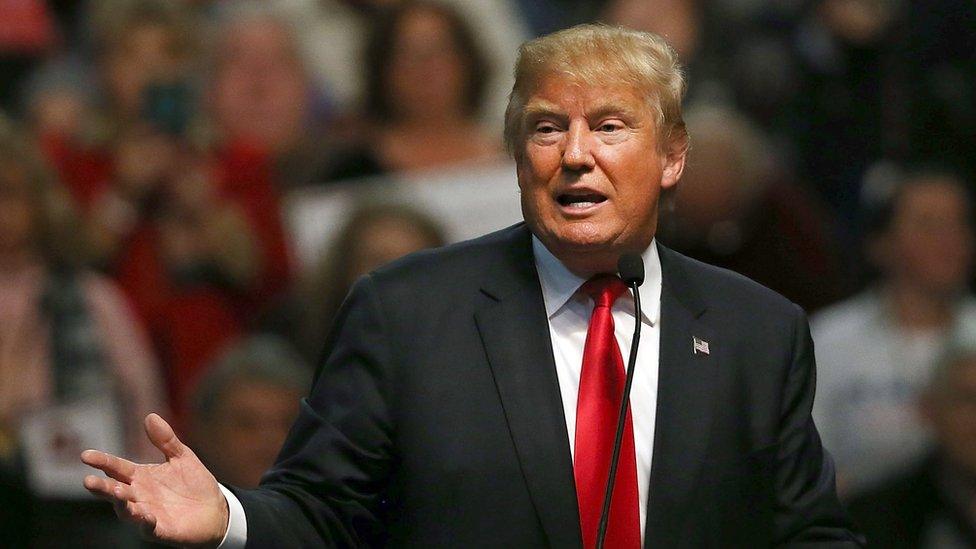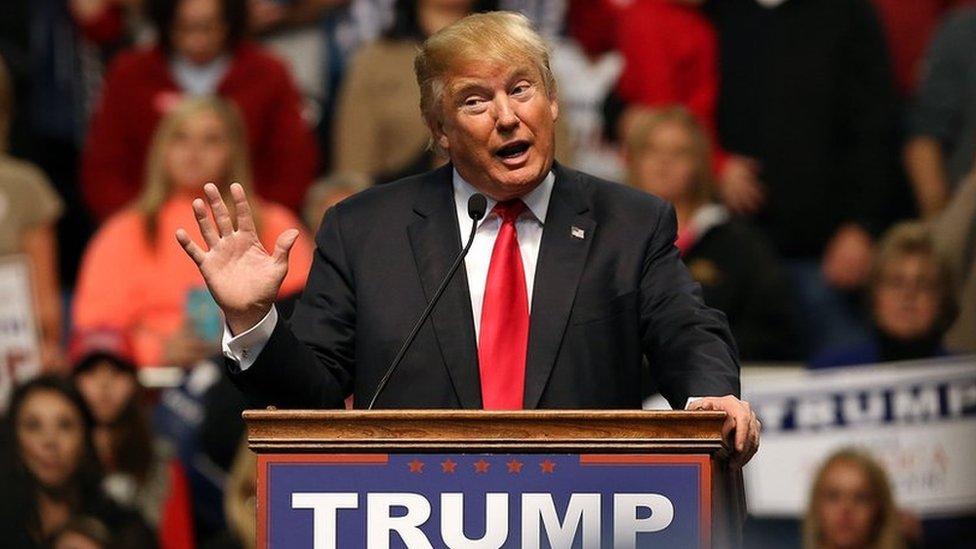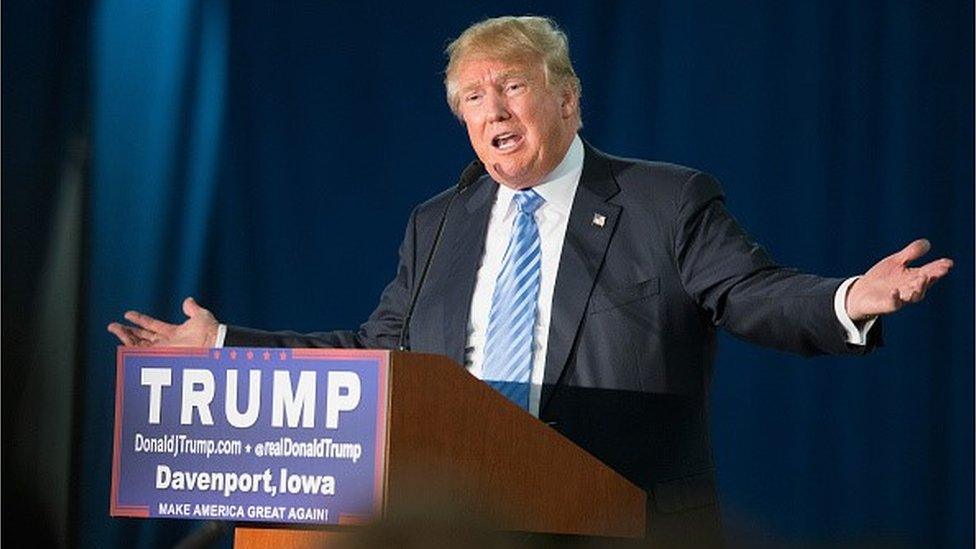Donald Trump favours high tariffs on Chinese exports
- Published

Presidential candidate Donald Trump supports a hefty export tariffs on Chinese goods coming into the US.
He said he supports a 45% tax on Chinese goods to address the trade imbalance between the US and China.
The Republican frontrunner told the New York Times: "I would do a tax and the tax, let me tell you what the tax should be … the tax should be 45%."
Mr Trump said he would expect China to impose its own tax on US goods in retaliation.
China is the second biggest single trading partner to the US and is expected to overtake Canada for the top spot this year.
Importers of Chinese products into the US are charged a tariff based on the type of good.

Analysis: Michelle Fleury, New York correspondent, BBC News
This isn't the first time Donald Trump has proposed slapping heavy tariffs on imports.
In 2011, the billionaire businessman told the Wall Street Journal that all Chinese imports should have a 25% tariff. He insists that China has an unfair advantage over the US.
Regardless of the merits of Mr Trump's claim, there's no doubt he speaks to a widespread and entrenched fear among American voters.
They've long been certain that their jobs will be "lost" to China, and they can always find plenty of "made in China" labels to validate that assumption.
But with China's market chaos wreaking havoc on Wall Street, along with every other financial centre, the irony is that American voters might do better to be worried for China than about it.

Mr Trump has spoken about the Chinese-US economic relationship throughout his campaign.
In November he released a plan to address the relationship between the countries.
The plan included lowering the US corporate tax rate, but not this latest proposal of a 45% tax on Chinese goods.
In October, the Trans-Pacific Partnership (TPP) agreement was reached between 12 nations including the US and several Asian countries, but not China.
The free-trade deal raised questions about whether US importers would move production from China to countries like Vietnam to avoid taxation on goods sent to the US.
- Published3 January 2016

- Published9 December 2015

- Published4 January 2016